© Edm
It was the author of the dystopian novel “1984”, George Orwell, who wrote: “A people that elect corrupt politicians, imposters, thieves and traitors are not victims… but accomplices.” Now the European Parliament is riven with claims, counterclaims, and accusations of criminality for gain; the only people enjoying this sorry debacle would probably be the British politicians who campaigned for Brexit, although the deterioration of the UK since it left the EU is apparently making the citizens of other countries less keen these days on the idea of leaving the Union. Most people must surely know about the claims that Qatar bribed some important and influential MEPs to vote in ways its government wanted and that would prove lucrative to the country. The Parliament has strict rules on honesty and transparency which some MEPs seem to have ignored, although nothing has yet been absolutely proved in a court of law. MEPs, however, have been given the go-ahead to change the Parliament’s internal rule book to provide the European Public Prosecutor’s Office (EPPO) with powers to demand the lifting of legal immunity from members if needed. During its short existence, the EPPO has tracked down billions of euros in possible damages. The President of the Parliament, Roberta Metsola, wants tougher rules on meetings with lobbyists and campaigners, with the same rules also applying to staff. The changes were adopted unanimously.
Followers of all the various religious faiths are supposed to be opposed to the use of criminal means for self-advancement. But it happens. It is strictly forbidden in the Quran, just as it is in the Christian Bible and other “Holy books”, but even the most devout countries have found the path to righteousness strewn with thorns and nettles, and with a few savage beasts lurking in the undergrowth, not to mention the demons of temptation (money, in other words). However, the preachers of the various faiths continually urge their faithful followers (perhaps not quite as faithful as they would like, at least not in every case) to shun sin and adopt the path of purity and innocence. “Mankind is prone to corruption anywhere in the world,” wrote Imam Khamenei, an Islamic scholar, “Any human who does not practice self-observation is prone to corruption.” He was clearly a sensible chap. All faiths oppose corruption in principle and find it hard to forgive, according to their scriptures, although theoretically they all forgive in the end. Forgiveness is more-or-less inevitable, if rarely earned. And it carries a cost. The price of forgiveness for corrupt politicians and officials seems to be resignation from high office and handing back the improperly acquired loot.
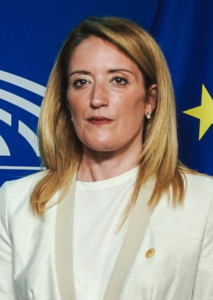
Corrupt activities happen even in countries sworn to honesty and bound by religious practices. “May the curse of Allah be upon the briber and the bribe recipient,” says the Qur’an. It could hardly be clearer. And yet, of course, bribery and corruption still happen in Islamic countries, just as they do in countries that observe different faiths, or none at all. There may be a large number of religious beliefs, all different, but greed is truly universal and everywhere it is supposedly frowned upon. Most people seem to want to be seen as honest, especially if they are followers of a faith and observe its teachings. There are a lot of “would-be” saints, but very few who qualify for a seat in one of the seven levels of Heaven in which most Muslims are said to believe.
In the Qatargate scandal now gripping the European Parliament, four people have so far been charged with corruption and money laundering. Others seem certain to follow. Matters have moved quite quickly; it was only in December that Belgian authorities launched an investigation of current and former members of the European Parliament who had been accused of accepting bribes in return for voting in ways demanded by Qatar and, it’s alleged, Morocco. One of the four to be charged is Greek Socialist MEP Eva Kaili, who was Vice-President until she was removed by a landslide vote of 625 to 1. She – and, for that matter, Qatar – deny any wrongdoing. Now the Parliament and its president, Roberta Metsola are left with the job of sweeping out these “Augean stables”, which had been one of the labours of Hercules in Greek mythology: a messy, difficult job, as Kaili, who is Greek, should know. Prior to her arrest she had served as one of the European Parliament’s fourteen vice-presidents. By the time you read this, a new vice-president will have taken her place.
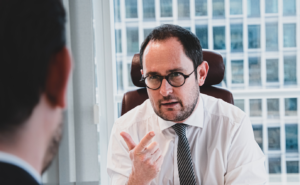
| NO STONE UNTURNED?
She will probably also be out of the prison where she has been held since 9 December, together with her partner Francesco Giorgi. Like her, he has appealed for release. Both deny any wrongdoing. It’s a complicated investigation, involving money laundering, corruption and organised crime and it allegedly implicates not only MEPs and some of their staff, but also the states of Qatar and Morocco. Qatar denies any involvement in trying to buy influence with the European Parliament, but investigators in Belgium, Italy and Greece who have been looking into the affair have seized €1.5-million in cash while simultaneously seizing computers and mobile phones and charging four people (at the time of writing; by the time you are reading this there could be more) with various offences connected to the allegations. Belgium’s Minister of Justice, Vincent Van Quickenborne has vowed to “leave no stone unturned” in his detailed probe into alleged corruption. In fact, it’s now said to be the biggest such investigation in a quarter of a century, with law enforcement officials having both Qatar and Morocco in their sights, which makes it especially unusual. Investigations on this scale normally involve allegations against criminal gangs, not countries.
It’s not plain-sailing, however; some lawyers are saying that information is being leaked, despite the seizure of mobile phones, computers and, of course, vast sums in cash. The leak of key documents, though, is worrying, with some experts saying that fair judicial procedure is no longer possible, with defence lawyers able to use the leaks to weaken cases against their clients. Van Quickenborne now requires round-the-clock protection from the gangs that ultimately lie behind the whole sordid affair. Now another Socialist MEP, Belgium’s Maria Arena stands accused of corruption for not recording that her trip to the Qatari capital, Doha, to take part in a conference, as well as her accommodation there, had been paid for by the Qatar government. She denied that the event had been co-organised by the European Parliament, despite photographs showing her speaking from a podium with the Parliament’s logo. She has blamed her secretary for failing to declare the foreign travel. It was “an error” Arena said, that she has ordered to be put right. None-the-less, she could still face a financial penalty of up to €10,140.
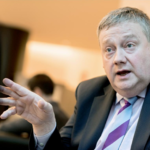
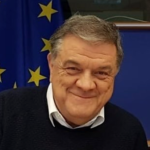
Meanwhile, Belgian investigators have now asked for immunity to be lifted for two more MEPs suspected of involvement in the scandal: Marc Tarabella, a Belgian, and Italian Andrea Cozzolino. Furthermore, former Italian MEP Antonio Panzeri, together with his wife and daughter, saw in the New Year under arrest, instead of in a luxurious Marrakesh hotel, funded by the Moroccan government. He is thought to have been employed to improve Qatar’s image ahead of the World Cup. Panzeri had headed EU-Moroccan relations until he lost his seat in the 2019 election. It was in July 2022 that Francophone Office Central pour la Répression de la Corruption (OCRC) and the Dutch language Centrale Dienst voor de Bestrijding van Corruptie (CDBC), both part of the Belgian Federal Police, (those unfamiliar with Belgium must be aware that both French and Dutch (Flemish) are spoken there so official bodies must be duplicated in order to respect both languages) opened their investigations. On 9 December, Belgian police carried out twenty raids at nineteen Brussels addresses. In addition, other arrests were made across Belgium and also in Italy, with homes and offices being searched, and that included offices inside the European Parliament’s headquarters building in Brussels. As required under the Belgian constitution, the President of the Parliament, Roberta Metsola, was obliged to return from her home in Malta in order to be present for the search of the home of Eva Kaili, who enjoys diplomatic immunity both as an elected MEP and also (at that time) as a Vice-President of the European Parliament. Following on from the raids at Kaili’s home, her father attempted to escape, fleeing the Sofitel Hotel in Place Jourdan, Brussels, after he had received a tip-off about an impending raid. As he was trying to get away, police searched his hand baggage and thus recovered “several hundred thousand euros”, packed into a suitcase. It was certainly more than he might need for a coffee, an ouzo or the duty-free shop.
| SPREADING THE NET WIDER
Also raided were locations linked to a former Italian MEP, Antonio Panzeri, where police found large sums of cash in a safe. Ironically, the investigators also raided the offices of the international anti-corruption NGO, “Fight Impunity”, which was set up to assist in the fight against people being let off without punishment for their criminal acts in cases involving serious violations of human rights and crimes against humanity. Panzeri was the organisation’s president. When the Brussels raids had been completed, a number of people were under arrest, including Eva Kaili, Antonio Panzeri, and Francesco Giorgi, who is Kaili’s partner and also an advisor to the Italian MEP Andrea Cozzolino.
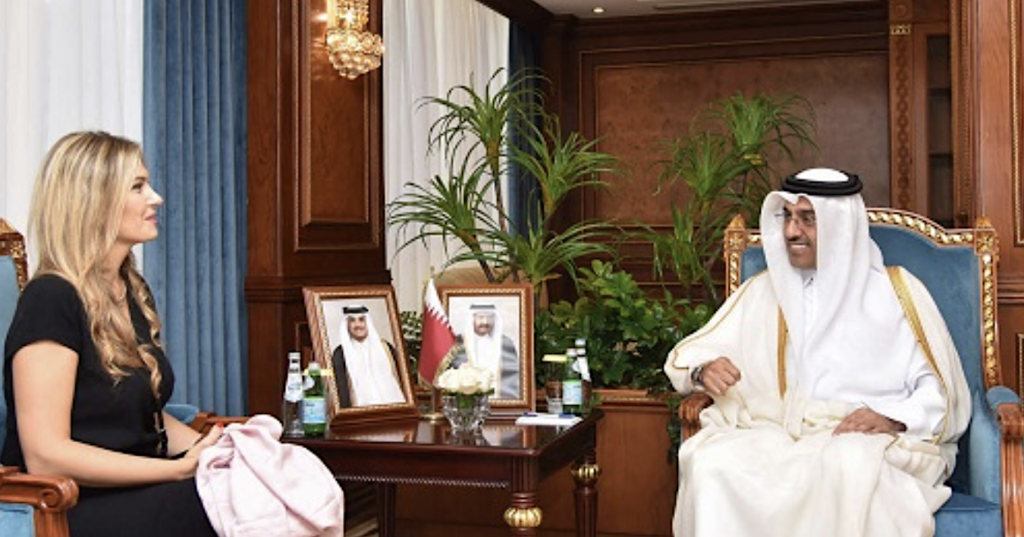
In addition, Alexandros Kailis, who is Kaili’s father and a former Greek politician, plus Luca Visentini, who is General Secretary of the International Trade Union Confederation (ITUC), were all taken into custody. In Kailis’s case, investigators found a suitcase with “several hundred thousand euros” on his person as he attempted to flee. Investigating judge Michel Claise deemed the arrest to be in flagrante delicto, or “caught in the act”. This led to Kaili losing her diplomatic immunity, which had thus far prevented investigators raiding her property. Kaili’s property was subsequently searched. Around a dozen police officers as well as judge Claise took part in the search. They then arrested Kaili, who did not resist, but she was described as being “in a state of shock and confusion, crying and terrified”. Kaili was then interrogated for more than five hours
The list goes on: it includes Niccolò Figa-Talamanca, Secretary-General of the NGO, “No Peace Without Justice”, and also an assistant of the Italian MEP, Alessandra Moretti. According to Politico, Alexandros Kailis was later released from custody and Visentini was conditionally released. Reports say that €600,000 in cash was found at the Panzeri house in what police described as “a well-stocked safe”, with further cash being traced to Kaili’s father’s home as well as turning up in his hotel room and at the home shared by Kaili and Giorgi. The total sum discovered came to €1.5-million. Following Kaili’s arrest she was initially detained at the Prison de Saint-Gilles until her transfer five days later to another prison in Haren, Bussels.
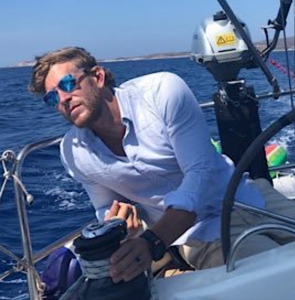
Needless to say, Qatar isn’t letting these allegations go unchallenged. While Belgian investigators look into claims of corruption at the same time as Putin is threatening to use the winter as a weapon, gas-rich Qatar has warned that any sort of investigation into Qatar’s allegedly illegal activities and possible corruption could mean there will be no deal on gas. This would seem to run contrary to the spirit of Islam, but where profit is concerned, moral and correct behaviour can get forgotten. Belgian investigators are thorough, and in a previous case uncovered the gangsters’ code for communicating with their crooked colleagues. The code, Sky ECC, had been cracked, which enabled them to roll up an organisation run by some very wicked people.
As Van Quickenborne has said before, the country doesn’t give free passes to crooks. The Greek news website, Ekathimerini-com, reported that a Belgian appeals court has decided to keep Niccolò Figa-Talamanca, an Italian suspect in the “Qatargate” scandal, in detention after prosecutors objected to a decision to release him with an electronic tracking bracelet. The affair has now become one of the biggest corruption scandals Belgium has ever seen.
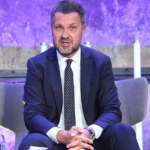
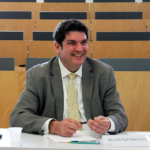
One British newspaper has pointed out that the whole affair points an accusatory finger at Europe’s left-wing parties. “The fact is that all those so far accused of taking bribes from Qatar and its ally Morocco are left-wing MEPs – or former MEPs – and their assistants, or else bosses of left-wing human rights charities or trade union leaders,” according to Nicholas Farrell writing in The Spectator. “Most are Italians who are members, or ex-members, of Italy’s post-communist party – the Partito Democratico (PD).” Farrell then proceeds to rub salt in the wound: “The hypocrisy of these prize exponents of the Euro left – some of whom, according to leaked transcripts of their interrogations, have already in part confessed – is staggering. For these defenders of the rights of the poor and the downtrodden are accused no less of systematically taking bribes from the small gas-rich Islamic state in the Persian Gulf (among other things) to whitewash its dire human rights record.” Certainly shocking, if true, but the “if” is important here. The Qatar-based news source, Al Jazeera, reported how the country could retaliate if investigations continue. Please note: this is not a threat to retaliate if a negative report results from the ongoing investigation suggesting corruption by Qatar. It’s a threat to take retaliatory action if Qatar’s methods even come under scrutiny.
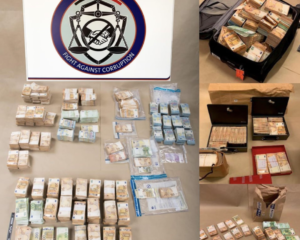
In other words, “investigate our methods and we will punish you”, whether or not you uncover any criminal activity on our part. And yet the allegations are serious, suggesting that elected parliament members accepted cash from Qatari officials in order to sway their voting intentions. If proved, it would mean that Qatar had bought a particular outcome. Cash for votes has always been seen as a very serious matter, whatever the issue that someone is seeking to influence.
Qatar has accused the Belgian legal authorities of singling it out for criticism in a way that is “unfair”. In this case, the unnamed Qatari diplomat said the emirate nation believes it is being victimised by the authorities and it has denied any improper or immoral activity. “We firmly reject the allegations associating our government with misconduct,” the diplomat told the media. Some news reports have suggested that individuals with links to Morocco are also under investigation. “We have observed this week’s selective condemnation of our country with great alarm,” the diplomat added, saying that Belgium had made insufficient effort to establish lines of communication between the two countries. “It is deeply disappointing that the Belgian government made no effort to engage with our government to establish the facts once they became aware of the allegations,” the diplomat told the media. He also alleged that the Belgian authorities had used “inaccurate” information in their investigation. It is unfortunate in the extreme that this whole issue should arise just as Russia is stepping up its pressure on the West over supplies of gas.
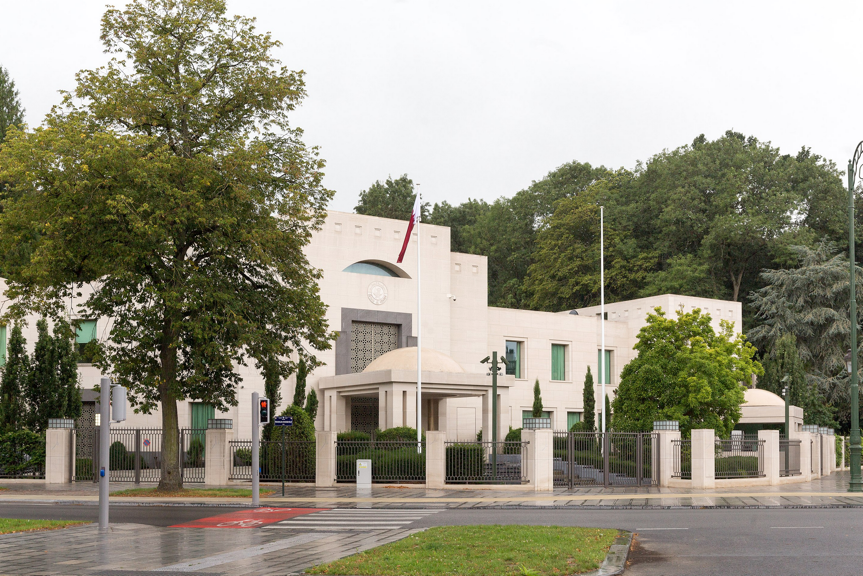
| BIGGER AND BIGGER
Qatar is one of the world’s largest exporters of natural gas and it is keen to develop long-term contracts to supply its gas to European and Asian markets. It’s not the only Middle Eastern supplier of natural gas to be vying for long-term contacts with the West. Qatar, which is one of the world’s largest gas exporters, is seeking to expand its capacity to produce and to export liquefied natural gas but without, of course, becoming accidentally embroiled in Russia’s attempt to take over and subjugate Ukraine. Apart from other considerations, Qatar is keen to expand its market in such European markets as Italy, France, Germany, and Austria. Under a deal it signed in November, Qatar will supply liquid natural gas (LNG) for the next 15 years from its North Field East and North Field South expansion projects, working closely with ConocoPhillips of the United States to develop its market.
The gas itself is predominantly methane (CH4), with a small ad-mixture of ethane (C2H6), cooled until it is in liquid form for safe storage and transport. In this way it takes up just 1/600th of the volume of natural gas in its unprocessed state. It is hazardous because, despite being odourless, colourless, non-toxic and non-corrosive, it is none-the-less extremely flammable. It has to be reduced to minus 1620 or around 25 kilopascals (kPa or 4psi) at gauge pressure, or around 25% of atmospheric pressure at sea level. It is, of course, the decomposition of organic material that produces marsh gas, which is what natural gas is. Methane, the simplest and lightest hydrocarbon, is a highly flammable compound consisting of one carbon atom surrounded by four hydrogen atoms. It was mainly formed at around the same time as most of the world’s coal: roughly between 359-million and 273-million years ago, during the Carboniferous and Early Permian eras, when much of the land, including Antarctica, was covered in trees. Never in the planet’s history have there been so many woods covering the world’s surface. Once the gas has formed, its fate depends on just how porous the rock is that surrounds it. Porosity is a matter of major concern to the oil and gas industries since it dictates how much the rock can store and how easy or difficult it may be to extract it.
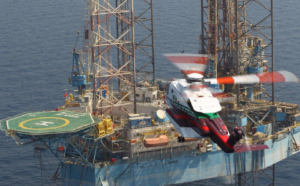
Porosity is the percentage of void space in a rock, according to the Wisconsin Geological and Natural History Survey, carried out by the University of Wisconsin-Madison. Porosity is defined as the ratio of the volume of the voids or pore space divided by the total volume. It basically comes down to how much of the desired fossil fuel it can hold in its interstices, which is a matter over which the country fortunate enough to possess a large quantity of it has no control. We know Qatar has quite a lot of it, it’s relatively easy to access and the government there wants to do business. Its record for fair play may be considered dubious in some quarters, however; Qatar seems prepared to do business with some fairly unsavoury customers. In the United States there are those who would prefer not to do business with Qatar at all because of its alleged support for terrorist groups, including Hamas, which has an office in the country. The Daily Wire reported in November that: “Qatar has openly housed Hamas leaders, Taliban leaders, and has several individuals who have been sanctioned by our U.S. Treasury Department, and it has failed to prosecute them.” That was why former Republican Senator Ileana Ros-Lehtinen thought trade links should be cut off. “At least one high-ranking Qatari official provided support to the mastermind of the 9/11 terror attacks against our country, Khalid Sheikh Mohammad,” she said. However, the Biden administration has agreed an arms deal with Qatar under which the US will sell Qatar various kinds of weapon to the value of $1-billion.
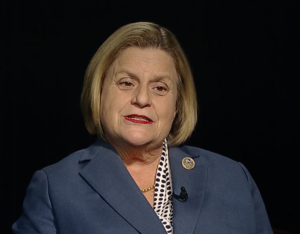
The State Department said the move will support the foreign policy and national security objectives of the United States, and it referred to Qatar in a statement as “an important force for political stability and economic progress in the Middle East.” Such is the state of Middle East politics that it is not easy to look at a map and point out the lines between friend and foe. “The proposed sale will improve Qatar’s capability to meet current and future threats by providing electronic and kinetic defeat capabilities against Unmanned Aircraft Systems,” the Daily Wire quoted the State Department as saying in a statement. The picture is further complicated by the position of Iran. When you look closely, the picture is normally much more complicated than you might imagine. I have a good and clever friend who is Iranian and when I was in Afghanistan I found the Mujahideen friendly and often amusing. Indeed, I still have a photograph of a group of them, posing with their Kalashnikovs, framed on the wall of this office where I write. They were not like today’s Taliban rulers who are so terrified that women may be cleverer than them (something that clearly would not be hard to achieve) that they have now chosen to ban all education for girls. Qatar, however, also has links with the international terrorist Khalifa Mohammed, who was responsible for funding al-Qaeda and who also masterminded the 9/11 attack. Interestingly, Mohammed was tried and convicted by Bahrain in absentia in 2008. He was then arrested but Qatar released him just 6 months later. Qatar’s commitment to opposing terrorism would seem to be somewhat half-hearted at best. Ros-Lehtinen told the Foreign Affairs Committee of the House of Representatives that: “Many individuals and charities in Qatar have been known to raise large sums of money for al-Qaeda, the Nusra Front, Hamas and even ISIS.” There’s more, she said, too: “In Qatar, there are three buckets: Terror financing by the government; terror financing done in Qatar through their own citizens that their government may not know about; and terror financing in Qatar that the government knows about but does nothing to stop.”
| A HANDFUL OF BAD APPLES OR A BARRELFUL?
In the EU’s corridors of power there is a degree of nervous tension right now. Is it just a few individuals who couldn’t resist temptation? Or is the whole edifice built on shaky foundations and about to tumble down?
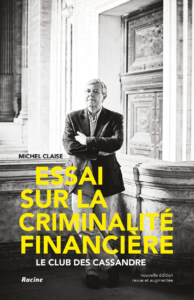
Initially, the investigation launched by Belgian prosecutor Michel Claise led to the arrests of four individuals, including former Vice-President Kaili. She has been charged with corruption, money laundering and with being part of a criminal organisation. How many more will find themselves under police investigation? It’s hard to say. Some European Parliament officials are predicting that only “a few individuals” will be found to have accepted bribes to take Qatar’s side in debates and votes of importance to Doha. Certainly, the sums of money allegedly involved were large enough to provide a lot of temptation. The police soon began further raids and searches of premises, so it may well stretch beyond the “handful” that was being predicted. The raids in Brussels began as soon as the Parliament opened a plenary session at its other site in Strasbourg. It seems that, as of 21 December, six further arrests had been made and police had seized an additional €1-million. It’s been predicted that more people will face arrest, with some experts anticipating that the Qatar bribery scandal was just a small part of something far bigger and more widespread. It’s also being predicted that the dragnet will involve a wider range of EU institutions than just the Parliament. It seems that oversight of financial activities has been less than scrupulous, with individual non-EU countries able to contact MEPs without those contacts being recorded anywhere except, one supposes, in the diaries or appointment books of the individual politicians. It’s been noted that the ability of states to contact elected members without those contacts being recorded anywhere is a recipe for corruption and bribery.
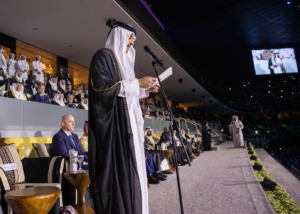
It’s not the first time that an EU institution has been rocked by allegations of corruption. Jacques Delors had been a very successful President of the Commission, although he was inclined to listen perhaps a little too closely to his press officer. Delors was due to step down in 1994, but some governments had seen him as too much of a federalist during his term of office, so opposed having the Belgian Prime Minister, Jean-Luc Dehaene as his replacement. He was thought to be similarly federalist, so they chose instead the Luxembourg Prime Minister, Jacques Santer. As a result of being “the second choice”, his position was viewed as weaker than, for instance, that of Delors had been, although he gained the power he needed under the Maastricht Treaty, and it was Santer’s Commission that oversaw preparations for adopting the euro as the EU’s single currency. The whole affair became embroiled in scandal and controversy, largely turning into a party-political skirmish between the left-wing Party of European Socialists (PES) and the right-of-centre European People’s Party (EPP). Controversially – and not without a political battle – the entire Commission tendered its joint resignation. It was a total mess.
That was then; this is now. Qatar was always a controversial choice to host the World Cup football tournament, ultimately won by an understandably elated Argentina. There were plenty of accusations about Qatar using slave labour to complete the work, with the argument in favour of the choice of venue being swayed by the country’s huge gas reserves and willingness to do deals. Its reserves of gas are reckoned to be the third biggest in the world after Russia and Iran, whose moral judgements are unlikely to find much support in Europe.
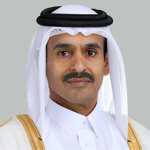
Qatar’s Energy Minister, Saad Sherida Al-Kaabi assured CNN that that his country planned to play a “central rôle” in the region’s energy policy. He had already signed a gas deal with Berlin before a single football (or spectator) was kicked. Qatar is also a massive investor in Europe, owning glittering showpiece properties such as London’s Shard skyscraper, Harrods prestigious department store and 20% of Heathrow airport, while France remains the second most significant destination for Qatari investments, involving more than $26-billion (€24.45-billion) in assets. It has also created some 72,000 jobs.
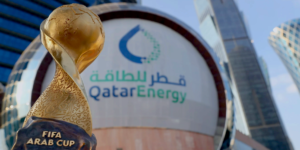
It was in her testimony to the US House of Representatives Committee on Foreign Affairs that Ros-Lehtinen reminded colleagues of Qatar’s terrorism links and of its failure to punish the very few people it catches and brings to trial. In other words, Qatar is certainly not a friend to the United States, even if it buys its armaments there. Nor to the rest of the West. Taken all-in-all, it’s a bit of a mess, and it’s widely considered now that the buck doesn’t stop in Doha. Blame is spread more widely than that and it’s not just individuals that are involved. Politico reports a conversation with Raphaël Glucksmann in Strasbourg. Glucksmann, the French head of Transparency International’s EU office, said: “The courts will determine who is guilty, but what’s certain is that it’s not just Qatar, and it’s not just the individuals who have been named who are involved.” He means “involved in foreign influence operations”.
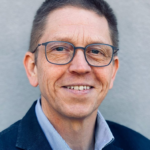
Michiel van Hulten, now heading Transparency International’s EU office, told Politico that while egregious cases of corruption involving bags of cash were rare, “it’s quite likely that there are names in this scandal that we haven’t heard being mentioned yet. There is undue influence on a scale we haven’t seen so far.” He then went on to define his meaning more clearly: “It doesn’t need to involve trips to far-flung destinations paid for by foreign organizations – and in that sense there is a more widespread problem.”
Politico also sensibly points out that the European Parliament has no built-in protection for internal whistle-blowers, despite having voted in favour of such protections being put in place for EU citizens. He reminded the newspaper that back in 1998, it was a whistle-blower denouncing mismanagement in the Santer Commission that precipitated the mass resignation of the entire EU executive. Glucksmann wants to see “extremely profound reforms”, as he put it, to a system that allows lawmakers to hold more than one job, leaves oversight of personal finances up to “a self-regulating committee staffed by lawmakers, and gives state actors access to lawmakers without having to register their encounters publicly.”
One has to admit that Glucksmann is making a very sound point, although I’m inclined to believe that with power as a lure and cash-in-hand as a reward, it’s going to be extremely difficult, perhaps impossible, to stamp out temptation. It’s worth remembering this quotation from the Islamic prophet Hazrat Ali Ibn Talib As, whenever you feel tempted to give in to a lust for gold or power: “Greed is permanent slavery”. Hold to that and you may not be so tempted to accept a bribe.

